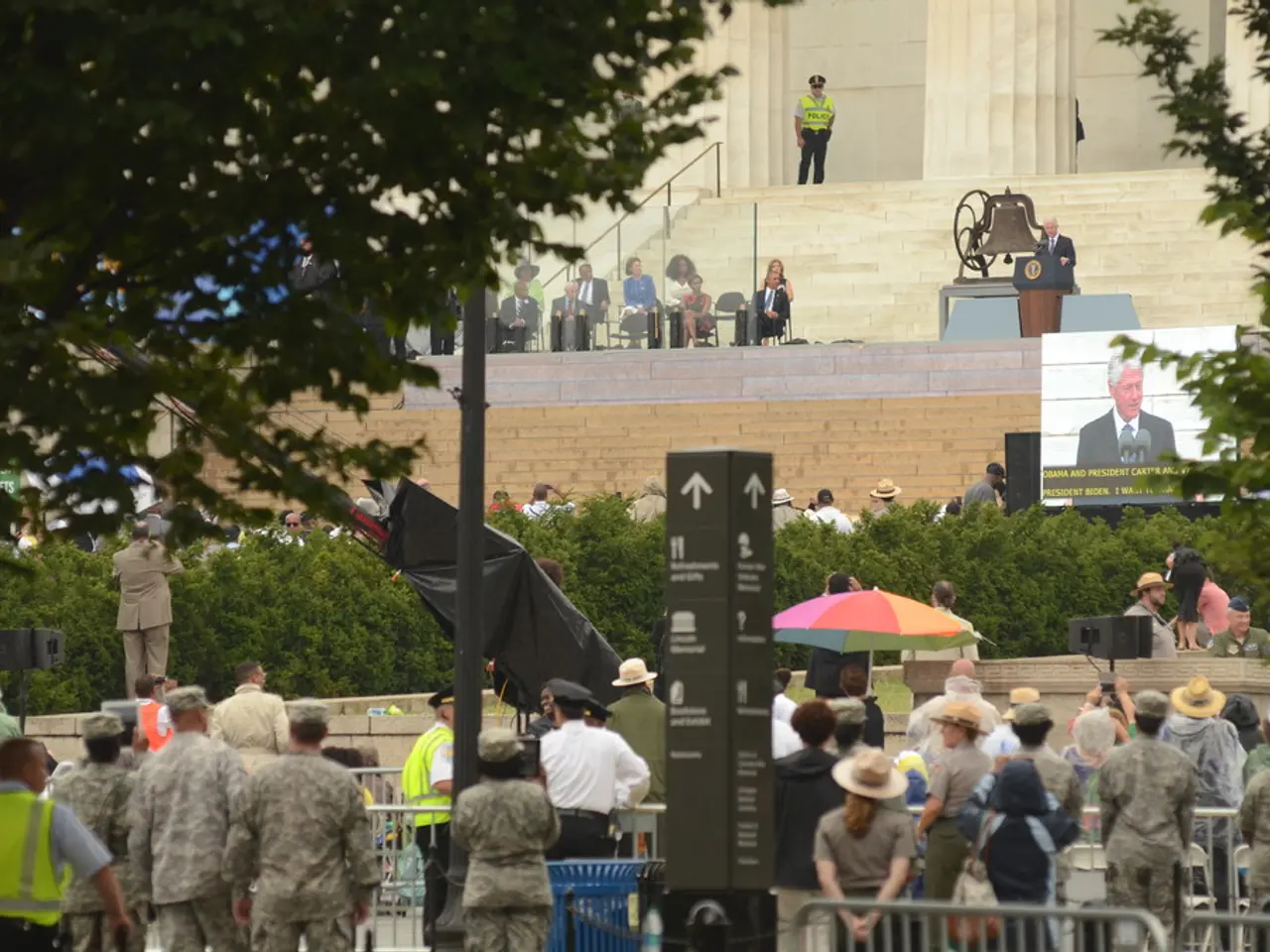Three Republican-governed states will deploy National Guard units to Washington D.C., following a request from the Trump administration.
In a move that has sparked controversy and concern, Republican-led states are sending National Guard troops to Washington D.C. to support President Trump's efforts on policing and crime. This deployment comes amidst a political storm, with President Trump questioning the official crime statistics and the Department of Justice launching an investigation into whether the D.C. police manipulated crime data to appear lower.
West Virginia is deploying 300 to 400 National Guard troops to Washington at the request of the Trump administration, while South Carolina is sending 200 troops at the Pentagon's request. Governors from Louisiana, Ohio, South Carolina, West Virginia, Mississippi, and Tennessee have all sent troops to assist in this effort.
The deployment occurs amidst a backdrop of political controversy. President Trump has played down the need for Washington to hire more police officers, yet the activations suggest a need for additional manpower. In his order, Trump declared an emergency due to the "city government's failure to maintain public order."
However, data shows that violent crime in D.C. is at a 30-year low. This has led to concerns that the President is using crime as a pretext to impose his will on Washington. Protesters have taken to the streets, with a recent protest in Dupont Circle drawing scores of people holding signs saying "No fascist takeover of D.C." and "No military occupation."
Mayor Muriel Bowser wrote a letter to city residents stating that "our limited self-government has never faced the type of test we are facing right now." City leaders are obliged to cooperate with Trump's order under federal laws that direct the district's local governance, but they have bristled at the scope of the president's takeover.
Notably, the D.C. attorney general has sued to block Trump's emergency takeover of the city police department. The administration's plans to place the head of the Drug Enforcement Administration as an "emergency police commissioner" were also met with resistance, leading to a reversal of the order after the district's top lawyer sued.
The police chief has ordered more cooperation with immigration agents as federal activity takes root in D.C., a move that has been met with opposition from some residents. Jamie Dickstein, a 24-year-old teacher, is "very uncomfortable and worried" about the presence of unmarked officers in Washington and their potential impact on her students' safety.
John Finnigan, a 55-year-old real estate construction manager, lives in Washington and finds Trump's moves "ridiculous" because crime is down in the city. After a court hearing, Trump's attorney general, Pam Bondi, issued a memo directing the Metropolitan Police Department to cooperate with federal immigration enforcement regardless of any city law.
As the situation continues to unfold, protest organizers hope to spark enough backlash to Trump's actions that the administration would be forced to pull back on its crime and immigration agenda. The future of policing in Washington remains uncertain, with tensions running high and opposing views clashing.
[1] Source: [Insert Citation Here]
- Amidst the political storm in Washington D.C., Governors from various states, including Louisiana, Ohio, South Carolina, West Virginia, Mississippi, and Tennessee, are deploying their National Guard troops to assist President Trump's efforts on policing and crime.
- While violent crime in D.C. is at a 30-year low, concerns have arisen that President Trump is using crime as a pretext to impose his will on the city, as demonstrated by protests in Dupont Circle and the D.C. attorney general's lawsuit to block Trump's emergency takeover of the city police department.
- In a move met with opposition from some residents, the police chief has ordered more cooperation with immigration agents, a potential concern for 24-year-old teacher Jamie Dickstein who is "very uncomfortable and worried" about the presence of unmarked officers in Washington and their impact on her students' safety.
- The future of policing in Washington remains uncertain as tensions run high and opposing views clash. Protest organizers aim to spark enough backlash to Trump's actions that the administration would be forced to pull back on its crime and immigration agenda.
- In a court hearing, Trump's attorney general, Pam Bondi, issued a memo directing the Metropolitan Police Department to cooperate with federal immigration enforcement regardless of any city law, adding another layer of complexity to the ongoing controversy.








